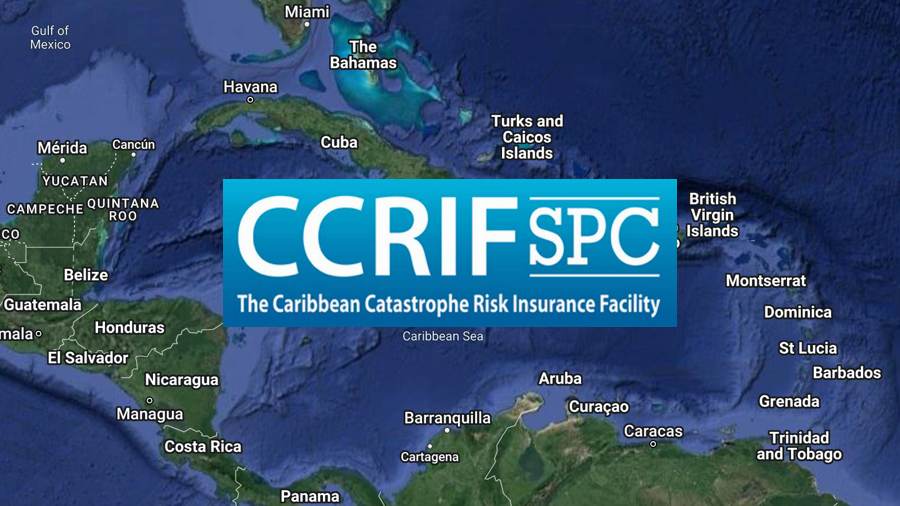CCRIF renews 10% more parametric coverage. Pays Guatemala $6.4m for rains

The CCRIF SPC (formerly known as the Caribbean Catastrophic Risk Insurance Facility) has seen its members renew their parametric insurance policies for the 2024/2025 policy year, with 10% more in parametric coverage purchased, while also making its first payout of 2024, $6.4 million for Guatemala after heavy rainfall.
As we reported early yesterday, the CCRIF is currently on-watch for payouts from hurricane Beryl, which we were told are likely to be made, with some of Grenada and St. Vincent & the Grenadines likely to receive parametric payouts and Jamaica also potentially in line for one.
The CCRIF said that it is “actively monitoring Tropical Cyclone Beryl, which is affecting several of our members in the Caribbean.”
Demonstrating the important source of responsive disaster risk transfer and financing that its parametric insurance policies provide, CCRIF has announced its first payout of 2024, which goes to Guatemala after torrential rainfall impacted the island from June 13th through 19th.
This rainfall triggered the Government of Guatemala’s CCRIF parametric excess rainfall policy and on July 1st the Government received a US $6,376,184 payout.
The CCRIF stays true to its goal of making all payouts within a fortnight of a disaster occurring.
Guatemala’s payout is a full one, under its excess rainfall (XSR) policy, meaning that the policy has reached its coverage limit.
The CCRIF noted it is working on enhancements to its parametric insurance policies, such as the Reinstatement of Sum Insured Cover (RSIC), which was introduced by for tropical cyclone and earthquake policies as far back as 2017.
It is now available for the excess rainfall parametric insurance as well and Guatemala had purchased this for the current year.
The CCRIF explained, “Guatemala purchased the RSIC under its XSR policy – at a cost that is a small fraction of the main policy premium. This means that, following the triggering of the policy to its limit, the XSR policy was immediately reinstated to the full coverage limit of US$6.38 million.
“Therefore, Guatemala will continue to be financially protected against excess rainfall events until the end of the policy year on May 31, 2025, or until the coverage limit of the policy is reached again as a result of one or more rainfall events prior to that date.”
On the 2024 renewal of CCRIF member parametric insurance policies, CCRIF CEO, Mr. Isaac Anthony, stated, “For 2024/25, total coverage has increased by 10 per cent compared with last year. This demonstrates our members’ commitment to investing in financial protection against natural hazards.”
With more parametric insurance limit purchased by members, it suggests a larger reinsurance placement may also have taken place for the CCRIF risk pool. As the pool scales up, it needs access to more reinsurance to support it, to pass on the efficiencies gained by pooling risk and accessing the reinsurance market as a group to its member countries.
The CCRIF explained, “The risk pooling mechanism allows CCRIF to offer parametric insurance policies with premiums that are 35-50 per cent lower than if members individually tried to access this type of coverage from the reinsurance markets. These lower costs of coverage are possible as CCRIF can pool diverse exposures, retain some risk and transfer excess risk to the capital and reinsurance markets.
“The risk pool has also enabled CCRIF to achieve financial and operational efficiencies, which enables members to benefit from relatively good and highly competitive premium prices, as well as premium discounts.”
The CCRIF had used capital market reinsurance support via catastrophe swaps or derivatives, and once a privately placed cat bond facilitated by the World Bank.
CCRIF said it “continues to push the innovation needle”, developing new product enhancements and parametric insurance solutions for its members.
In the last year, these included the addition of the Wet Season Trigger endorsement, which can payout for rainfall incidents that occur when the soil is already saturated from previous rainfall, capturing the heightened risk of flooding and landslides under these conditions,plus the Localized Damage Index (LDI) and Localized Event Trigger (LET) endorsements for tropical cyclones and rainfall events where losses are highly concentrated in small sections of a country.
Guatemala purchased the WST and LET endorsements under its excess rainfall policy and so will be covered for these conditions for the remainder of the year under its reinstated policy, CCRIF said.
This latest payout takes the total under CCRIF to almost US $144.4 million in payouts for tropical cyclone events, $50 million for earthquakes and now approaching $80 million for excess rainfall, since its launch.






